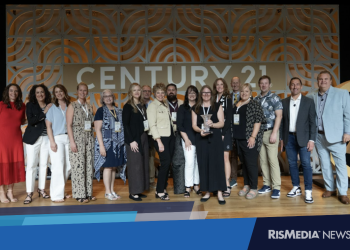Real estate is all about collaboration. People need to work together to make a deal happen—and software needs to work together to make sure people have the tools they need for those deals. When those connections happen, the dream of homeownership becomes much more realistic.
At Lone Wolf Technologies, we’ve known for a long time that real estate software would reach a point where it was simply too much. When an agent has their pick of over 100 solutions just for marketing, it’s clear that point is here.
Solving that problem is also about collaboration. Creating real solutions means looking beyond individual software and seeing their collective potential—the big picture that spans the real estate software industry.
But innovation doesn’t end when an industry’s scope does. There’s still plenty we can learn from outside our own industry—lessons that can help transform the way real estate works for the better.
People come first
In software, it’s easy to think in terms of patches, code, and releases. What gets lost sometimes is what those things are for. Yes, they’re to improve the software—but they’re really for the people. They’re to improve people’s experience, make people’s work simpler, help people get things done.
We see this in plenty of industries, but one that stands out is social media. The folks who build those apps are always creating new ways to give people easier access to the content they want, putting the user first—because if they don’t, no one will use their app.
Unlike social media, the real estate software we build isn’t optional. It’s a critical part of every real estate transaction, and that places even more priority on the user experience. Focusing on delivering a top-notch user experience means agents can work more effectively and efficiently, giving them an edge over their competition.
Work with the users
When we first started out, our founder, Lorne Wallace, would drive around to brokerages across North America to get feedback on Lone Wolf Back Office—brokerWOLF back then—and build new features based on that feedback right then and there.
Over the years, this sort of tactic has cropped up in plenty of industries, but one that’s been particularly successful in making it mainstream has been the gaming industry. It’s so common now to see early tests and feature feedback programs that players expect to get involved in new titles before they come out.
This is something real estate software can learn from for one simple reason: Imagine having that kind of power to influence the software that defines how you do your work.
At Lone Wolf, we know how impactful this sort of involvement can be for both sides—and that’s why we’re bringing our users into the process of creating new software. So they can get their hands on new features, and we can make sure we’re really delivering on our vision of simplifying real estate.
“World-class” is an earned title
Let’s talk about smartphones for a minute. If you ask an iPhone user if they’d ever switch, they often tell you no. They’re famously loyal. That’s because for decades, Apple has proven three things to their users:
- They know what users need
- They understand what users want
- They can—and will—consistently deliver on both
What’s more is that they’ve consistently gone above and beyond, even to the point of becoming the first smartphone brand that considered how a connected experience—one that gives people access to all their files across devices—could be part of someone’s everyday phone use.
That loyalty would look incredibly different if Apple hadn’t been able to deliver on both what users want and need, or even if they hadn’t found ways to go above and beyond consumers’ expectations to create an entirely new experience. You can want nice cameras and cool apps, but it doesn’t help you if you don’t have the WiFi connectivity you need to upload your photos or a way to access them on your other devices, does it?
The same rule applies to real estate. If you don’t have the needs—for example, the forms an agent needs to be able to process a transaction—and if you don’t consider all the ways someone could need to use your software, then the rest of the bells and whistles don’t account for much. And that’s a clear lesson for real estate software:
If you’re going to be world-class, you need to earn it in the eyes of your users—by making sure they have what they need and what they want for every expected function.
Lessons like these will change the way we think about real estate software.
Every lesson here comes down to one core idea: Software—and the people who build it—must prioritize the users’ experiences, wants, and needs to deliver real value. How we think about real estate software is due for a shift, and lessons like these—that focus on the people—are what will get us there.
By thinking about how software directly works for the people, we can define the future of real estate software, how it grows and evolves over the coming years.
At Lone Wolf, we’ve already started thinking this way with our agent marketing center, made to bring together every aspect of real estate marketing for agents in one place. But we’re not stopping there. We have big plans for real estate software, starting next year with Lone Wolf Foundation and the new generation of real estate software, and for years to come. We’re excited to show you how that will be different.
For more information, visit https://www.lwolf.com/.











